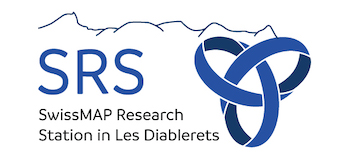
Non-locality is by now a well established field, both within foundations of quantum physics and in quantum information science. However, non-locality in networks is a new burgeoning field, triggered by "old" (Bell) nonlocality and by the prospect of future quantum network that will connect quantum processors and deliver, among others, informationally secure cryptography.
The main new ingredient is the assumption that distant sources of entanglement are independent. This is a very natural assumption, however it drastically changes the problem of characterizing which probability distributions are local, quantum and post-quantum. Indeed, this independence assumption implies that the problem is no longer convex, hence far more difficult and interesting.
Finding quantum distributions that are "network nonlocal" is far from simple, especially if one likes them to be noise-resistant and thus experimentally friendly. Interestingly - and in strong contrast to Bell nonlocality - there are cases without inputs. This should lead to quantum randomness (i.e. random outputs) without any inputs! Furthermore, the general characterization of network nonlocal probability distributions, only restricted by No-Signaling & Independence (i.e. by the NSI principle), is a fascinating research topic that goes beyond quantum physics.
